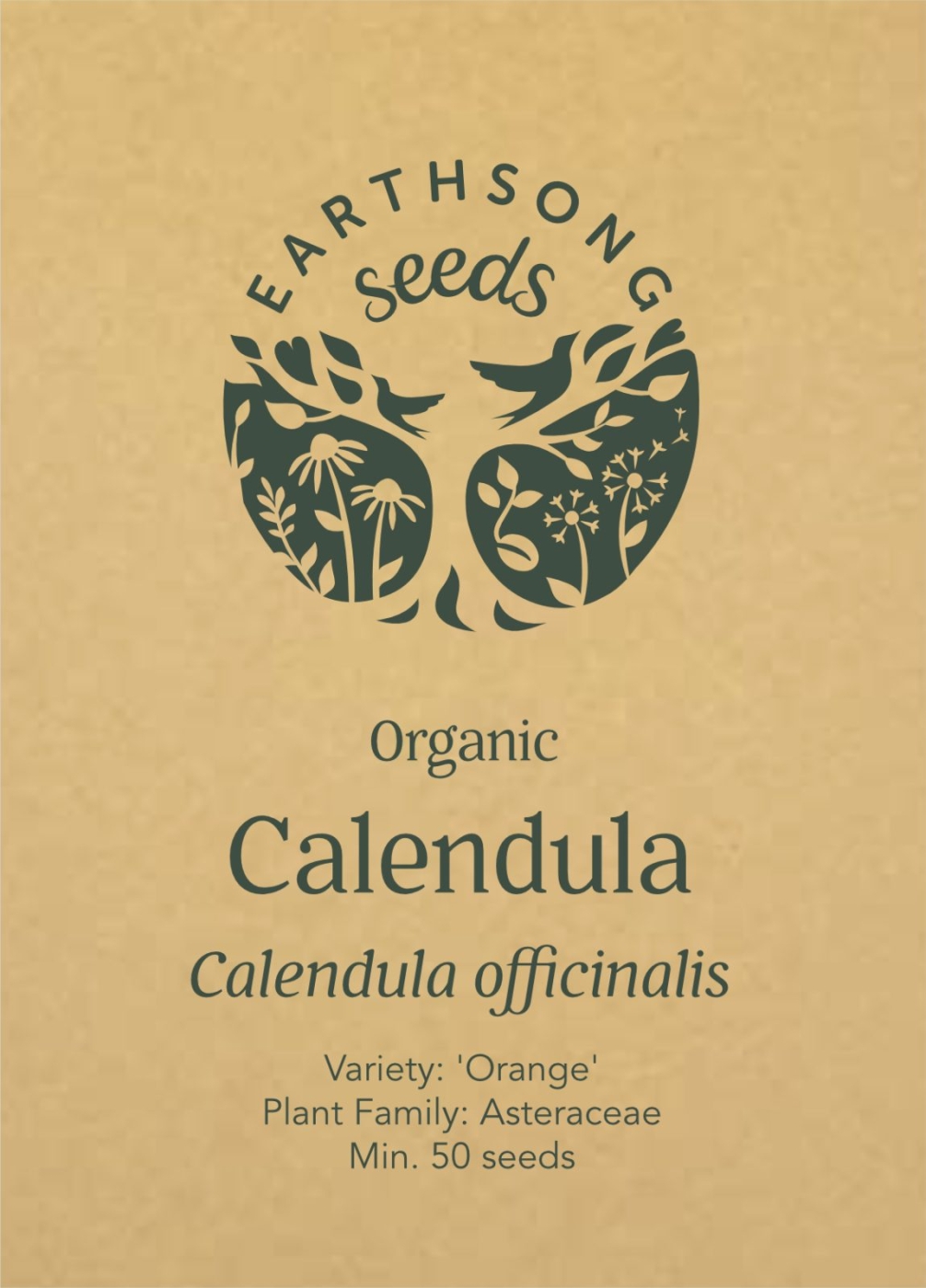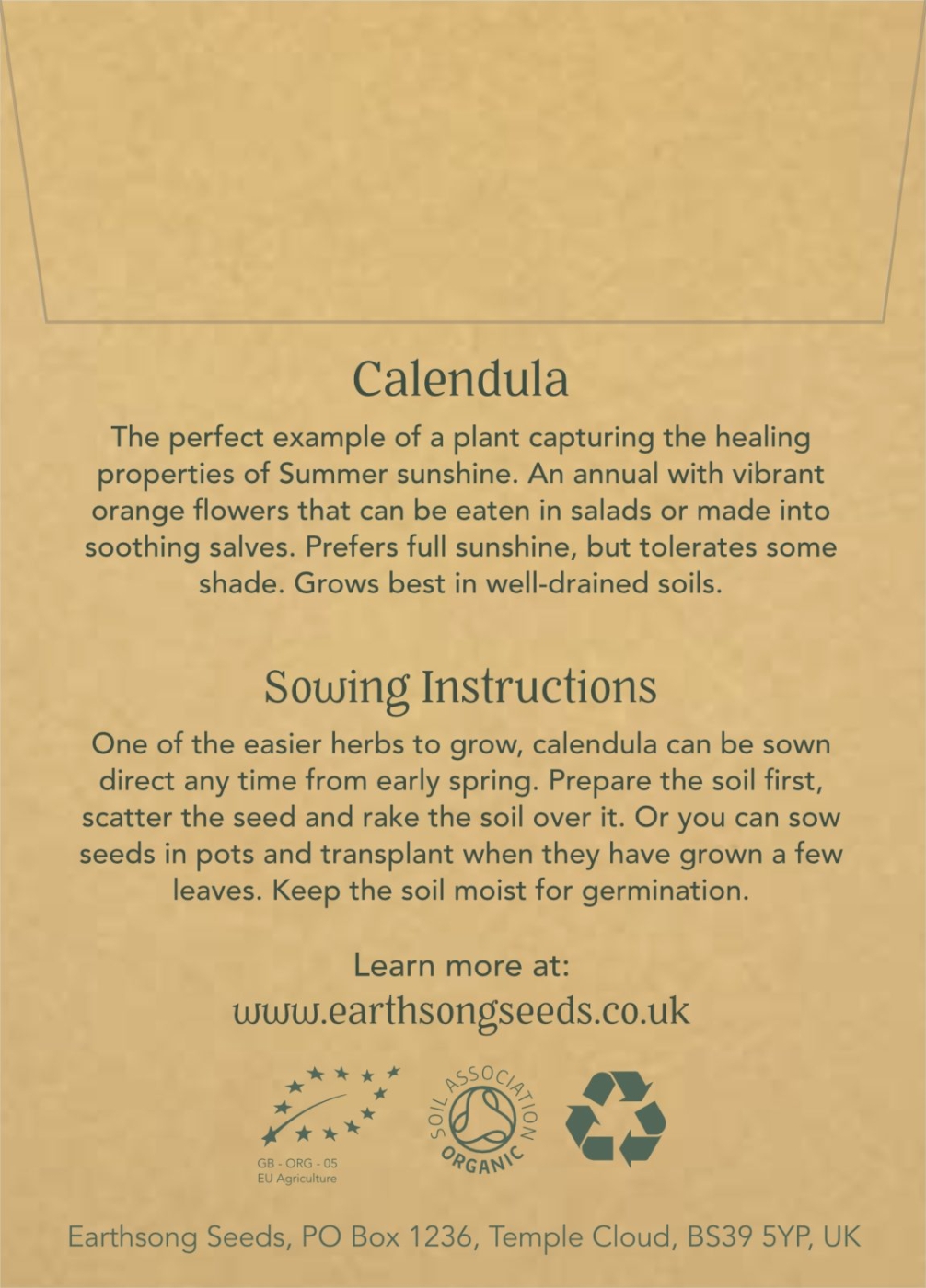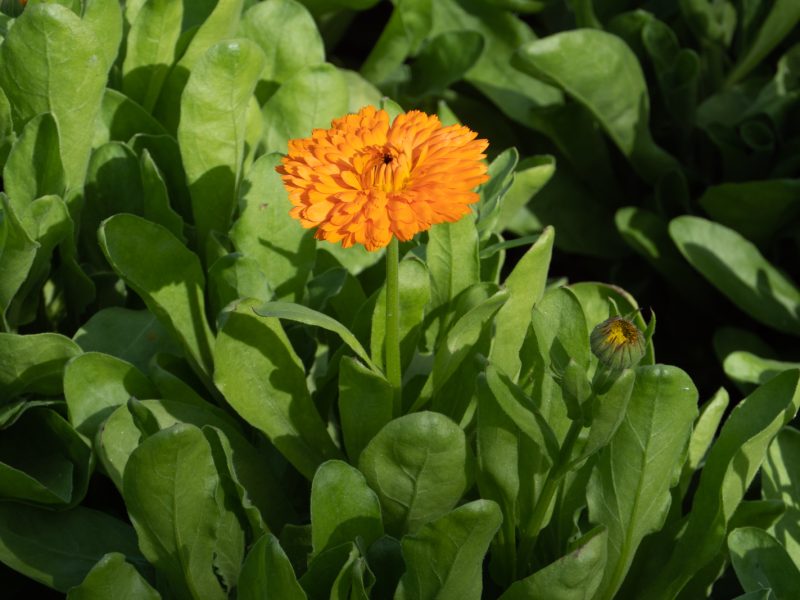The benefits of calendula are linked to its energetic character, as expressed through its constituents. The flowers, and infusions or tinctures made from them, taste slightly soapy (due to the detergent saponins), slightly aromatic and weakly bitter. There is a lingering almost resinous astringency in the mouth. You can also appreciate the resin-like properties on your fingers by crushing the flowerheads.
Calendula was once seen as the classic ‘cicatrizer’: a remedy that induces wound healing by knitting the exposed tissues. This is also a famous property of comfrey root: however given comfrey’s potential safety concerns if it gets into the body, calendula may be the wound remedy that can be most recommended where the skin is broken.
The strongest reputation of this remedy was in its healing and astringent action: sufficient to make it an effective stauncher of bleeding. It thus found use in earlier times where there were infected or slow-healing wounds or lesions, or ones discharging or bleeding too extensively. Its effectiveness (as a compress) in healing bullet wounds was reported enthusiastically by a Dr Reynolds in the American West in 1886.
Calendula’s effects on the skin is used in bruising, abrasions, slow-healing wounds, burns, insect bites and generalised skin inflammations. It will help clear the site of infection whilst also supporting wound-healing. It is also indicated where there is broken skin and itching in more chronic skin conditions such as eczema and dermatitis. Its a a good first aid remedy for minor burns, bleeding cuts and abrasions, sores, ulcers, acne, eczema, varicose veins, haemorrhoids, skin infections such as athlete’s foot and ringworm, shingles, sunburn, nappy rash, bruises, sprains and strains. Apply infusion or dilute tincture to reduce swelling and pain. The crushed flower can be rubbed on to insect bites, wasp or bee stings. The tincture (preferably involving high alcohol content) is an excellent mouthwash for inflamed gums, mouth ulcers, and throat inflammations. An infusion in hot water can be used as a douche for vaginal infections, eyewash for tired eyes, and inflammatory eye conditions such as styes.
Calendula tincture makes an effective addition to local applications to combat fungal and other infections of the skin and other exposed surfaces. It makes a powerful mouthwash to check gum disease, sore throat, and mouth problems and in infusion form only, as an eyewash. In ointment form it is an excellent cosmetic remedy for repairing minor damage to the skin such as subdermal broken capillaries or sunburn.
The flowers are also used for any inflammation in the upper part of the digestive system. Calendula will also encourage bile production, which can help relieve painful indigestion, digestive insufficiency and conditions such as jaundice and liver inefficiencies. The high alcohol extracts have been a feature of regimes for dysbiosis and Candidiasis.
Calendula improves the circulation, reducing congestion and toning the blood vessels, especially the veins. It can be used in poor circulation, varicose veins, haemorrhoids and internal bleeding associated with injury. This can also help encourage the start of menstruation and soothe any pain.
















Reviews
There are no reviews yet.